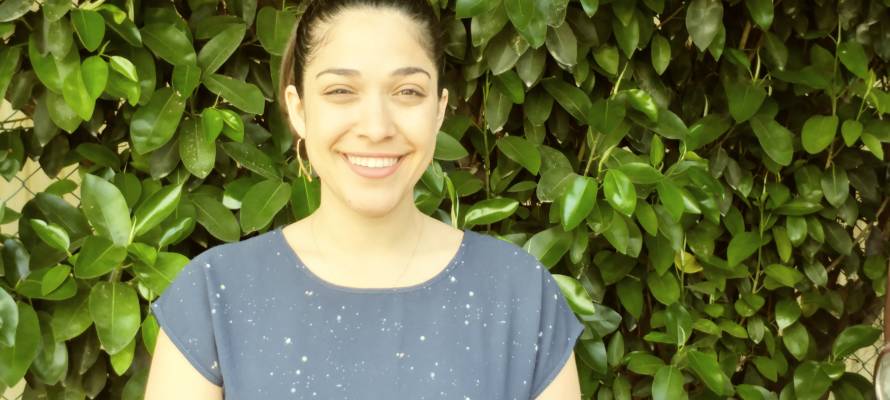Rotem Yosef is a lawyer, but she found her true calling where her heart is – helping the weaker strata of Israeli society, especially children.
Rotem Yosef is the CEO of Nevet (“Sprout”), an organization that provides 8,000 students at 130 schools throughout Israel with a daily nutritious sandwich that helps the kids concentrate on their schoolwork instead of on their empty stomachs. That adds up to a whopping 1.3 million breakfasts every year for disadvantaged youth – but she only wishes it could be more, because there are some 13,500 children still on the organization’s waiting list.
“I put my law work on pause because my heart is with working with the weaker segment of the population,” says the former advocate in the Knesset legal department for the labor, welfare and health committee. “I came for an interview two years ago and fell in love with the simplicity of the idea: A sandwich will help a kid listen and learn. It’s so logical, and I felt that I had the ability to help and establish the infrastructure, a system of donors, etc.”
Yosef came on board just when Nevet had just become an independent non-profit. She had already polished her skills by founding a volunteer organization called “The Third Generation for the Golden Age,” which matches up college and post-college young adults in Herzliya with elderly people for the benefit of both generations.
“I’m very attached to this [older] population,” Yosef explains. “I think it’s a mistake not to take advantage of their experience and wisdom. The idea is to create bonds between the younger and older people to give something to each.
“When young people come to visit for an hour each week and talk about what’s going on in their lives, they can learn a different perspective on life from the vantage point of people who have lived a lot longer than they have. And the elderly look forward to it so much. You see how they love it, how much they wait for that hour in that week. It dissipates their loneliness and boredom.”
The post-millennial generation also teaches their older friends basic computer skills, which can open up a new world to those long retired and/or homebound.
“I got the idea from my own volunteer work,” Yosef says. “I come from Afula, and when I was still in university, I would visit a lady who was a Holocaust survivor. Then, later, I started seeing a youth – well, Sidney was 85 years old, but he was young at heart! I became very close to him, seeing him every week, talking to him about my life. And I loved listening to him.
“He knew nothing about computers, and I taught him all the basics. I even went with him to the store to pick out his first computer. He started buying things on the internet and could make appointments for his doctors on the health fund site. Then he suddenly got sick and died, and I wanted to do something in his memory.
“It’s so easy, to make a connection between 20-30 year olds and the elderly,” Yosef says. “I did it with some friends, and seven years later we have almost 40 students in the program. I’m still involved, though less so now, more as an adviser.”
Children ‘Are the Future’
Although Nevet partners with corporate donors and accepts contributions from individuals, 50% of its budget comes from municipalities where the powers-that-be have been convinced by Yosef – and the statistics – that making this low-cost investment in children from lower socio-economic backgrounds can pay off in a big way.
“I’m trying to get to more municipalities, to tell them that improving how their city looks is important, but the kids are more important, they’re the future,” she says. “If you want them to pass their matriculation tests and get into good positions in the army, our meals help.”
She cited a Nevet survey according to which 83% of school principals reported that attendance rates improved after the students started getting this breakfast, and 96% said the students’ grades improved dramatically.
“At home, my parents always taught us to be empathetic, to give, to pay attention to others,” Yosef said. “The experience with Sidney showed me that with almost no effort, I can give so much – and it gave me such a great feeling. The person who gives gets so much more.”










